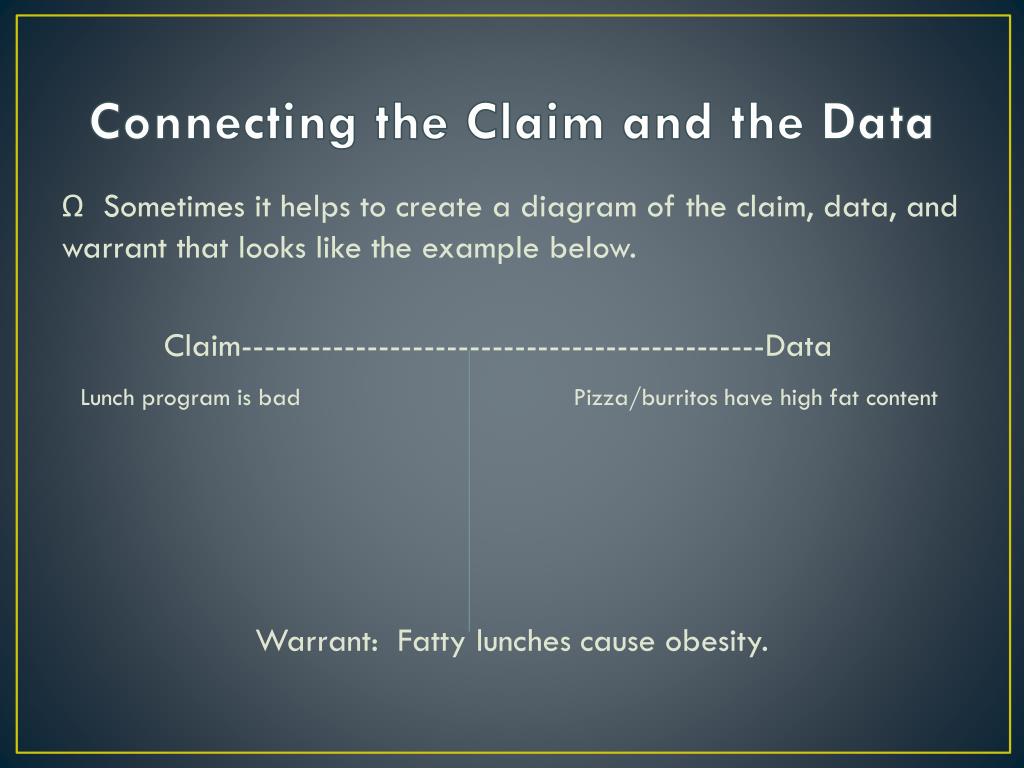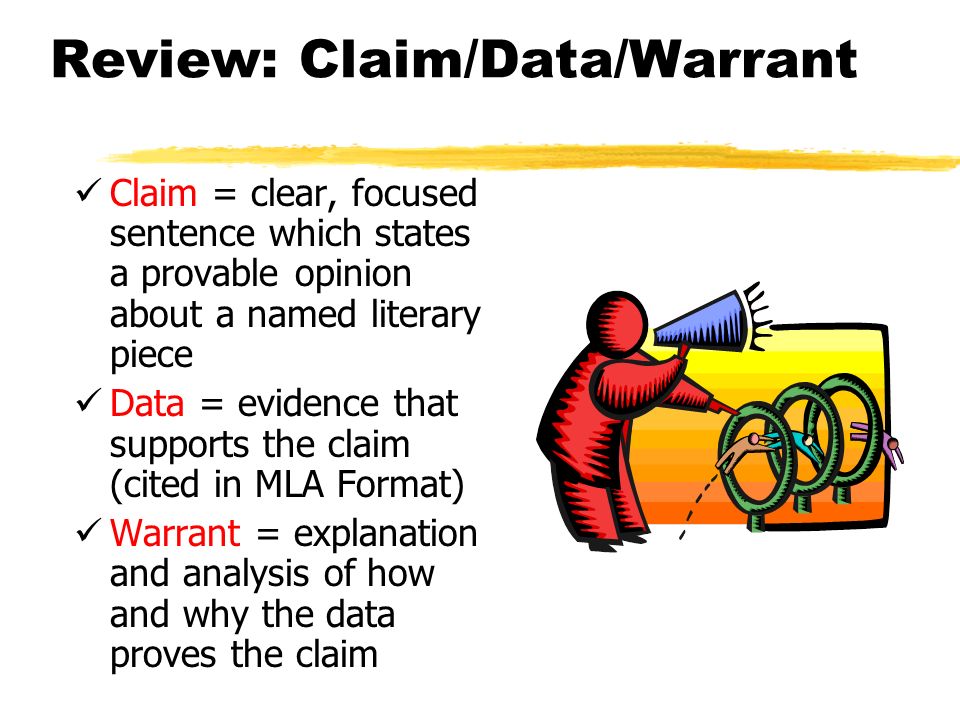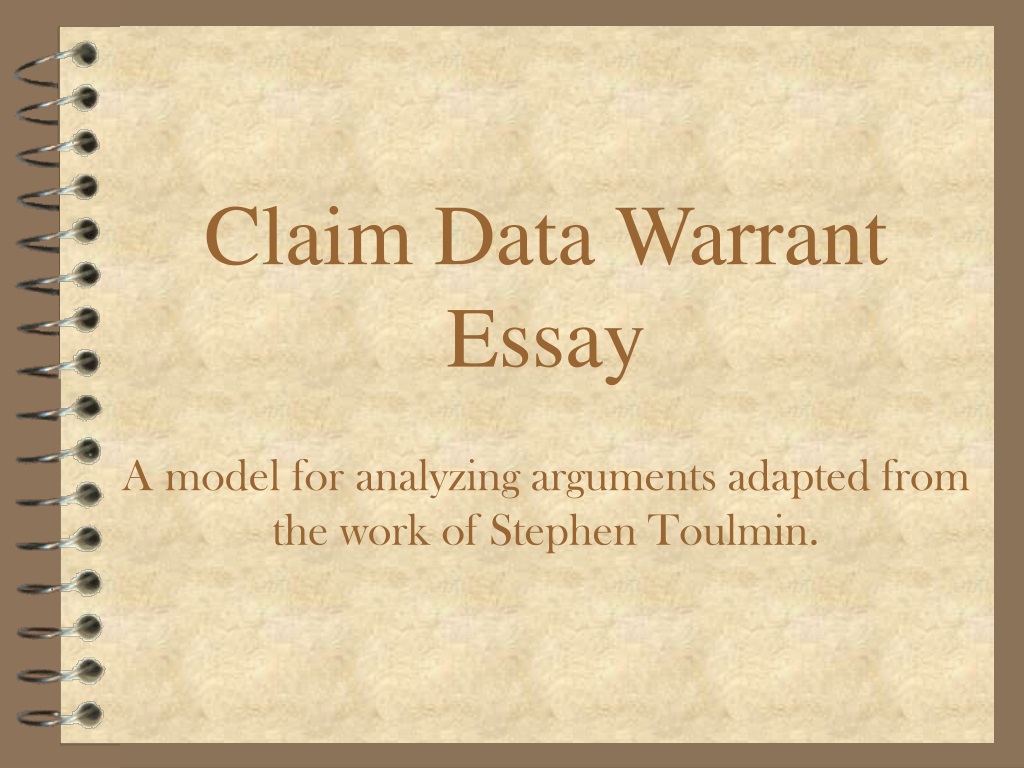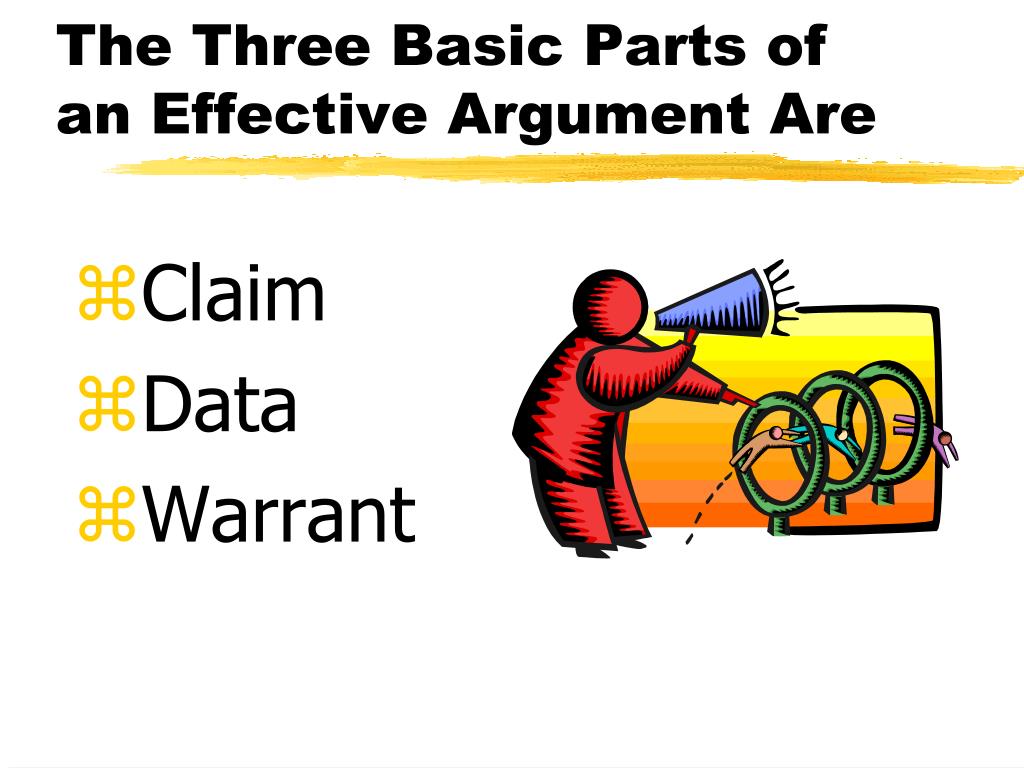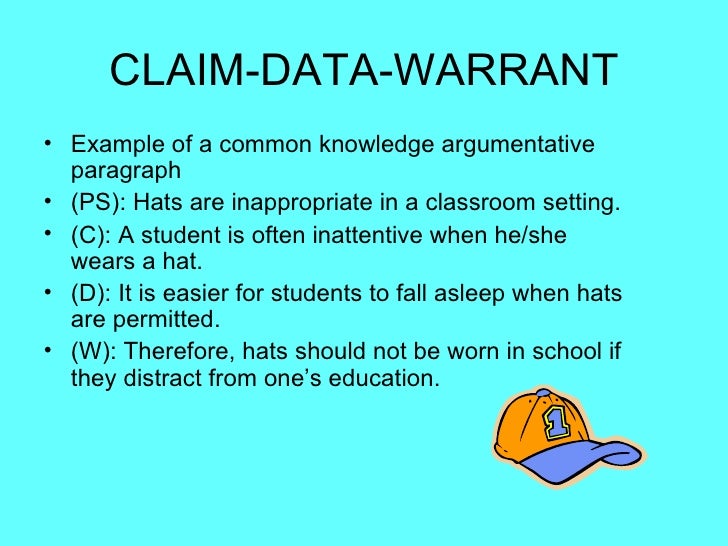Claim Data Warrant - The warrant interprets the data and shows how it supports your claim. A warrant links data and other grounds to a claim, legitimizing the claim by showing the grounds to be relevant. In toulmin’s method, every argument begins with three fundamental parts: Learn how to use claim/evidence/warrant (cl/ev/wa) to organize and critique arguments in writing. The claim, the grounds, and the warrant. A warrant is the principle, provision or chain of reasoning that. The warrant, in other words, explains why the data. A claim is the assertion that. Warrants are chains of reasoning that connect the claim and evidence/reason. The data (also called grounds or evidence ), which support the claim;.
Learn how to use claim/evidence/warrant (cl/ev/wa) to organize and critique arguments in writing. Warrants are chains of reasoning that connect the claim and evidence/reason. Toulmin identifies the three essential parts of any argument as the claim; A claim is the assertion that. The data (also called grounds or evidence ), which support the claim;. A warrant is the principle, provision or chain of reasoning that. A warrant links data and other grounds to a claim, legitimizing the claim by showing the grounds to be relevant. The claim, the grounds, and the warrant. In toulmin’s method, every argument begins with three fundamental parts: The warrant interprets the data and shows how it supports your claim.
This resource explains the basic. Learn how to use claim/evidence/warrant (cl/ev/wa) to organize and critique arguments in writing. A warrant is the principle, provision or chain of reasoning that. Warrants are chains of reasoning that connect the claim and evidence/reason. A claim is the assertion that. The data (also called grounds or evidence ), which support the claim;. The warrant may be explicit or. In toulmin’s method, every argument begins with three fundamental parts: The warrant, in other words, explains why the data. A warrant links data and other grounds to a claim, legitimizing the claim by showing the grounds to be relevant.
PPT CLAIM DATA WARRANT PowerPoint Presentation, free download
The warrant may be explicit or. A warrant links data and other grounds to a claim, legitimizing the claim by showing the grounds to be relevant. This resource explains the basic. The warrant interprets the data and shows how it supports your claim. Warrants are chains of reasoning that connect the claim and evidence/reason.
PPT CLAIM DATA WARRANT PowerPoint Presentation, free download
A warrant is the principle, provision or chain of reasoning that. This resource explains the basic. In toulmin’s method, every argument begins with three fundamental parts: Learn how to use claim/evidence/warrant (cl/ev/wa) to organize and critique arguments in writing. Toulmin identifies the three essential parts of any argument as the claim;
What exactly is “Claim / Data / Warrant” ? ppt video online download
The claim, the grounds, and the warrant. Warrants are chains of reasoning that connect the claim and evidence/reason. A warrant is the principle, provision or chain of reasoning that. The data (also called grounds or evidence ), which support the claim;. The warrant, in other words, explains why the data.
PPT Analyzing Arguments with Toulmin Model PowerPoint Presentation
In toulmin’s method, every argument begins with three fundamental parts: A warrant is the principle, provision or chain of reasoning that. The warrant, in other words, explains why the data. Warrants are chains of reasoning that connect the claim and evidence/reason. The data (also called grounds or evidence ), which support the claim;.
PPT What exactly is “ Claim / Data / Warrant ” ? PowerPoint
The warrant, in other words, explains why the data. A warrant links data and other grounds to a claim, legitimizing the claim by showing the grounds to be relevant. In toulmin’s method, every argument begins with three fundamental parts: The warrant may be explicit or. This resource explains the basic.
PPT The Toulmin Model PowerPoint Presentation, free download ID6134689
The warrant may be explicit or. Learn how to use claim/evidence/warrant (cl/ev/wa) to organize and critique arguments in writing. A claim is the assertion that. The warrant interprets the data and shows how it supports your claim. The warrant, in other words, explains why the data.
PPT CLAIM DATA WARRANT PowerPoint Presentation, free download
This resource explains the basic. Toulmin identifies the three essential parts of any argument as the claim; The data (also called grounds or evidence ), which support the claim;. In toulmin’s method, every argument begins with three fundamental parts: Learn how to use claim/evidence/warrant (cl/ev/wa) to organize and critique arguments in writing.
PPT The Toulmin Model of Argument PowerPoint Presentation, free
Warrants are chains of reasoning that connect the claim and evidence/reason. The warrant interprets the data and shows how it supports your claim. This resource explains the basic. Toulmin identifies the three essential parts of any argument as the claim; A warrant links data and other grounds to a claim, legitimizing the claim by showing the grounds to be relevant.
PPT CLAIM DATA WARRANT PowerPoint Presentation, free download
The warrant may be explicit or. The claim, the grounds, and the warrant. The warrant, in other words, explains why the data. The warrant interprets the data and shows how it supports your claim. Learn how to use claim/evidence/warrant (cl/ev/wa) to organize and critique arguments in writing.
Toulmin model of argumentation
The warrant interprets the data and shows how it supports your claim. The claim, the grounds, and the warrant. Toulmin identifies the three essential parts of any argument as the claim; This resource explains the basic. Learn how to use claim/evidence/warrant (cl/ev/wa) to organize and critique arguments in writing.
The Warrant Interprets The Data And Shows How It Supports Your Claim.
A claim is the assertion that. Warrants are chains of reasoning that connect the claim and evidence/reason. The warrant may be explicit or. The warrant, in other words, explains why the data.
Toulmin Identifies The Three Essential Parts Of Any Argument As The Claim;
A warrant is the principle, provision or chain of reasoning that. The claim, the grounds, and the warrant. The data (also called grounds or evidence ), which support the claim;. This resource explains the basic.
A Warrant Links Data And Other Grounds To A Claim, Legitimizing The Claim By Showing The Grounds To Be Relevant.
Learn how to use claim/evidence/warrant (cl/ev/wa) to organize and critique arguments in writing. In toulmin’s method, every argument begins with three fundamental parts:
